

Given the flood of questions about our relocation to Portugal and being American expats, I’ve taken the plunge and launched a second blog titled ‘American Family in Portugal’. Join us as we share our journey and insights into expat life in this beautiful country!
Transplanting to a new country requires a lot of grit and stretching your comfort zone. One of our primary reasons for moving to Portugal revolved around learning a foreign language: Portuguese! After years of traveling the world full-time with our children, I noticed a large gap that came with being an American citizen: the lack of a second language.
The primary reason we chose to learn Portuguese as a second language was our love for the country of Portugal. We view it as the “California of Europe,” but with incredibly kind, wholesome people and much cheaper to live in. Secondly, Chris already speaks fluent Portuguese (although a bit rusty) from being a missionary in Brazil for two years for our church.
It could be argued that English is the most useful language to speak. Many foreigners put in significant effort to learn English and speak it well. However, I personally dislike the part of the American culture that writes that off as ”enough.” Speaking a second language (especially a romantic language) opens the door for more knowledge now and an easier time acquiring a third language in the future.
I’ve often been amazed and in awe of the Europeans who easily speak 3-5 languages. This concept seems nearly impossible to many of us Americans. However, I’ve learned in my Portuguese classes that there is much crossover between romantic languages, making it easier to adapt. The “romantic languages” include French, Italian, Portuguese, Spanish, Romanian, and a few others.
During our travels, I constantly felt inhibited by our lack of language. We strive to really absorb new cultures through food and experiences, interacting with locals, and making friends wherever we are. While we will always be “tourists” to some degree, I really desire to experience new places in more depth than just a meal out and a few IG pictures (as lovely as those are!).
When we decided to settle abroad in Portugal, I knew learning the language would be paramount to our experience here. Prior to moving, we spent hours discussing the best way for all of us to learn. Chris already spoke Brazilian Portuguese, so his learning curve is much lower than for the rest of us.
For young children, learning a new language will mostly come from socialization with other children. They have no drive to go to a foreign language school and take that task upon themselves. The pressure from peers and the desire for friendships will be the catalyst for their learning.
Because of this, we decided to send our kids to a Portuguese school. We felt that combining the Portuguese curriculum with the natural social pressures would be the quickest avenue for learning.
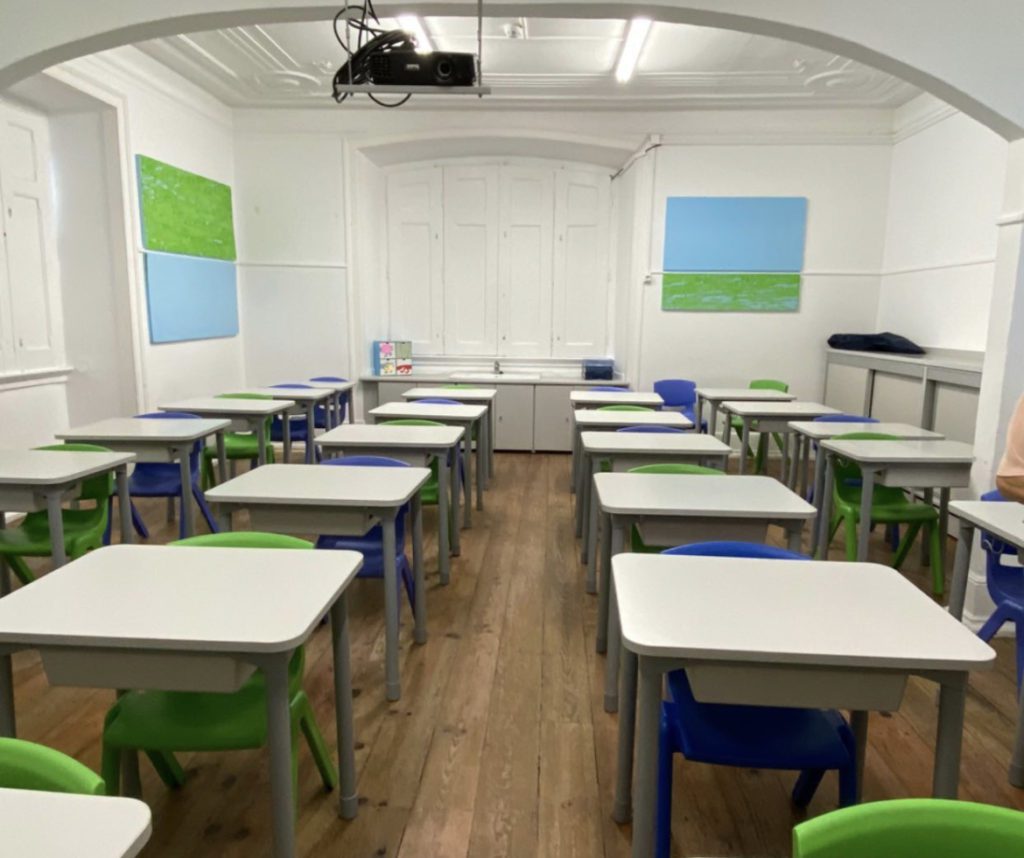
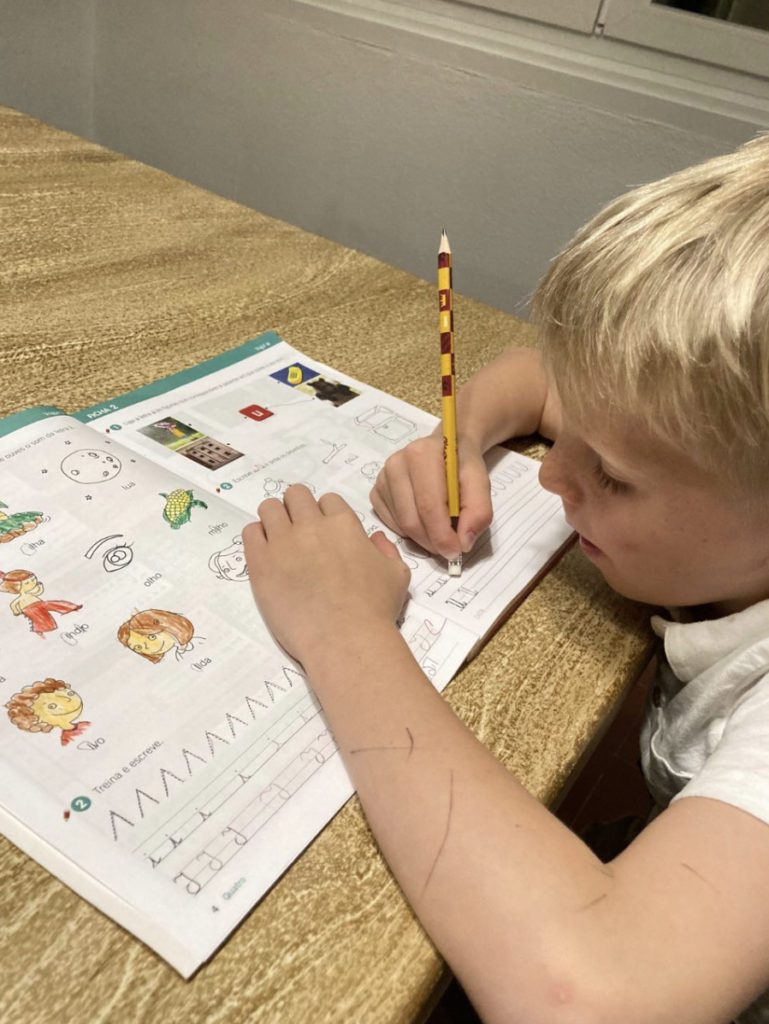
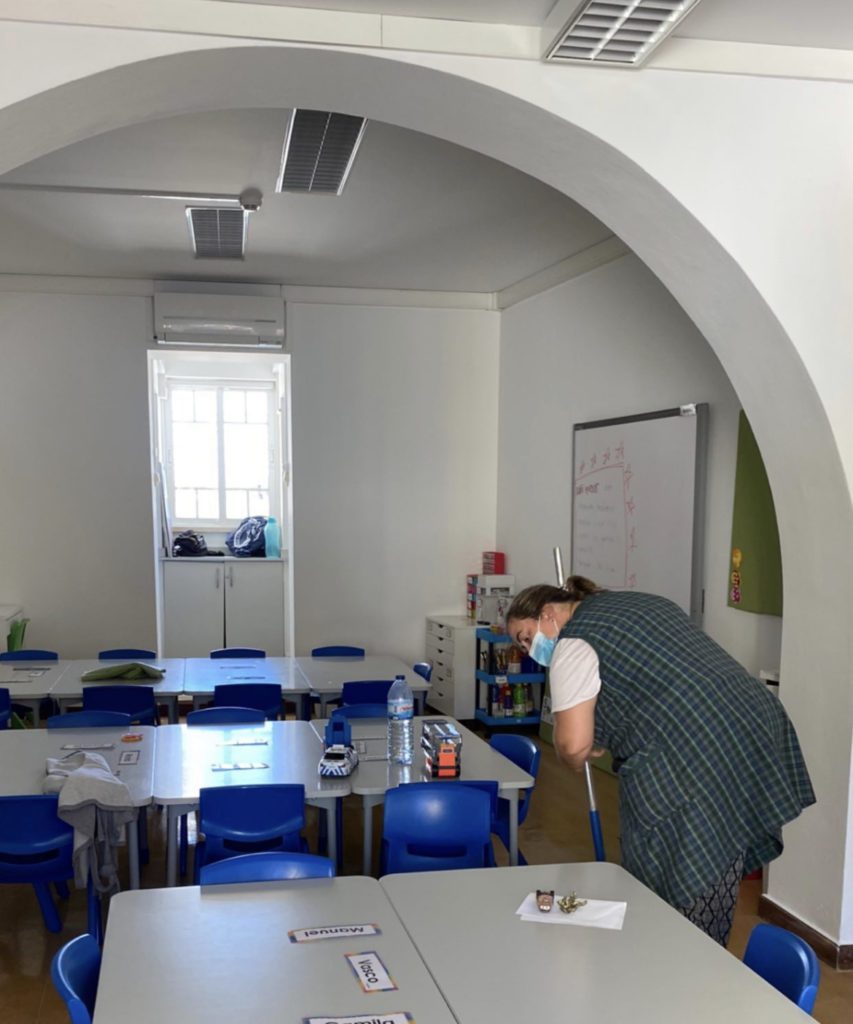
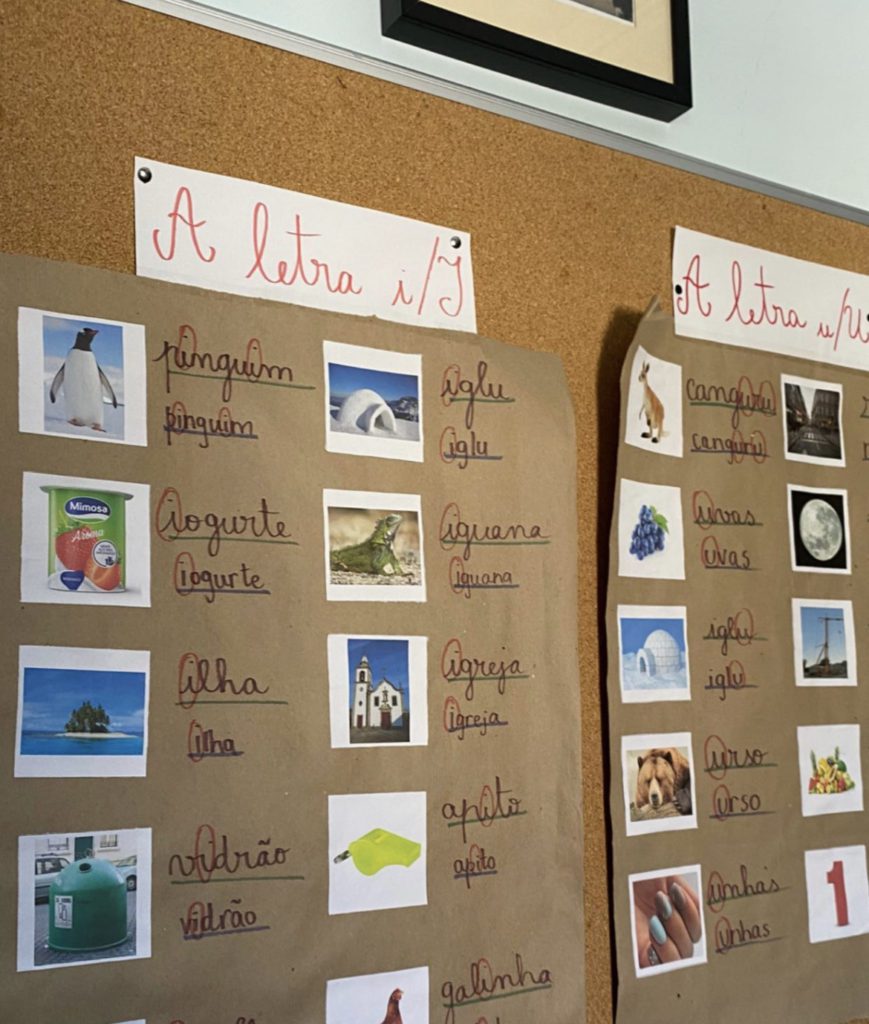
*Disclaimer: This post may contain affiliate links. Opinions shared are my own, and I only endorse products I support. By clicking on any of the links below, I may get a small commission if you purchase at absolutely no additional charge to you. I appreciate your support.*
Both public and private schooling options are available in Portugal. Private school seems to be much more common in European countries than in the US. They also don’t have to come with a massive price tag. However, public school has excelled over the last few decades. Forty years ago, the school was only mandatory until the fourth grade in Portugal! Now, I would peg the education system in Portugal as far more advanced than the Western US school experiences we have had this far in our parenting journey.
We opted to enroll in a private school at about 300€ each child per month.
Why? All five of our children, ages 14-4, can attend the same school together. We also loved the smaller class sizes, the more controlled environment, and the fantastic staff.
Since enrolling, we’ve learned the bullying that comes with being a foreigner is less prevalent at a private school than at a public one. Considering we’ve already dealt with a small amount of teasing and bullying (which rips my heart to shreds), gratitude fills me for our choice to go private.
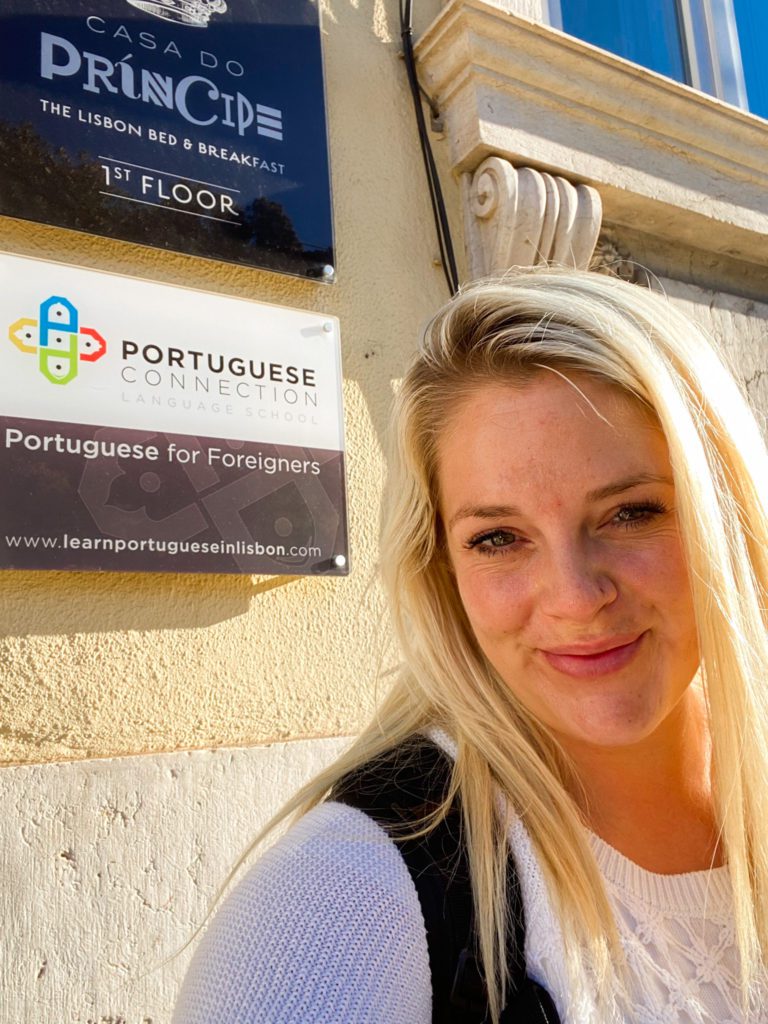
As a mother and digital nomad working in an American business that we own, the challenge of learning Portuguese is real! I simply do not have the time or the courage to use the other school moms as my learning ground. I know the culture demands something different, but my drive to get things done doesn’t allow me to linger around the schoolyard trying to make friends.
We do attend church each week and love our church family. Many women there would love to practice their English and help me to learn Portuguese. However, where would I even start? Only so much friendship can develop when all you can say is, “Hello, how are you?”
With a bit of an analytical and academic personality, attending in-person classes is exciting! I’m a school learner and always enjoy the opportunity to push myself mentally.
Many different resources teach Portuguese, both online and in-person. When I began doing my research, I learned one very important rule to know when learning Portuguese:
You must decide if you are learning Brazilian Portuguese or European Portuguese. Yes, they are different!
Because Brazil has more than 20x the population of Portugal, most learning resources teach Brazilian Portuguese!
I’ve also learned that Brazilian Portuguese is a bit easier to learn. There are a few grammar rules that make European Portuguese especially tricky!
Of course, living in Portugal means we want to learn European Portuguese.
I reached out to a few language schools in Lisbon and ultimately decided to go with Portuguese Connection School. Why?
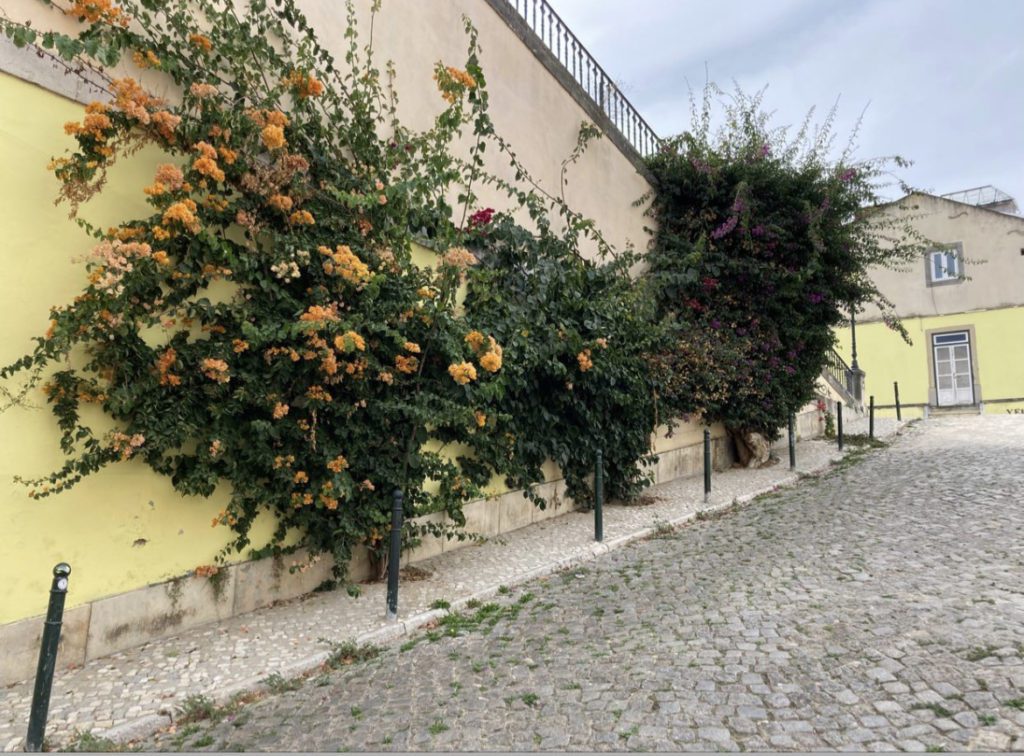

Once you contact the school, you’ll be sent a placement test. You must answer this series of questions to determine how much grammar and vocabulary you know. Most students in the course come from other European countries with various languages. Knowing French or Italian, for example, gives someone a huge leg up compared to an English-only speaker.
I was placed in the beginning course, and Chris, who lived two years in Brazil, was placed at a B1.1 level.
Each day, the class is held from 9 am – 1 pm. The school has several classrooms, and each day you may be switching around rooms but will stay with the same class and teacher for the week.
During these classes, you’ll receive books and learning materials. The classes are taught strictly in Portuguese from Day 1! I had a Spanish background and had lightly studied Portuguese using Duolingo and other small efforts for the past year. However, I was challenged right away!
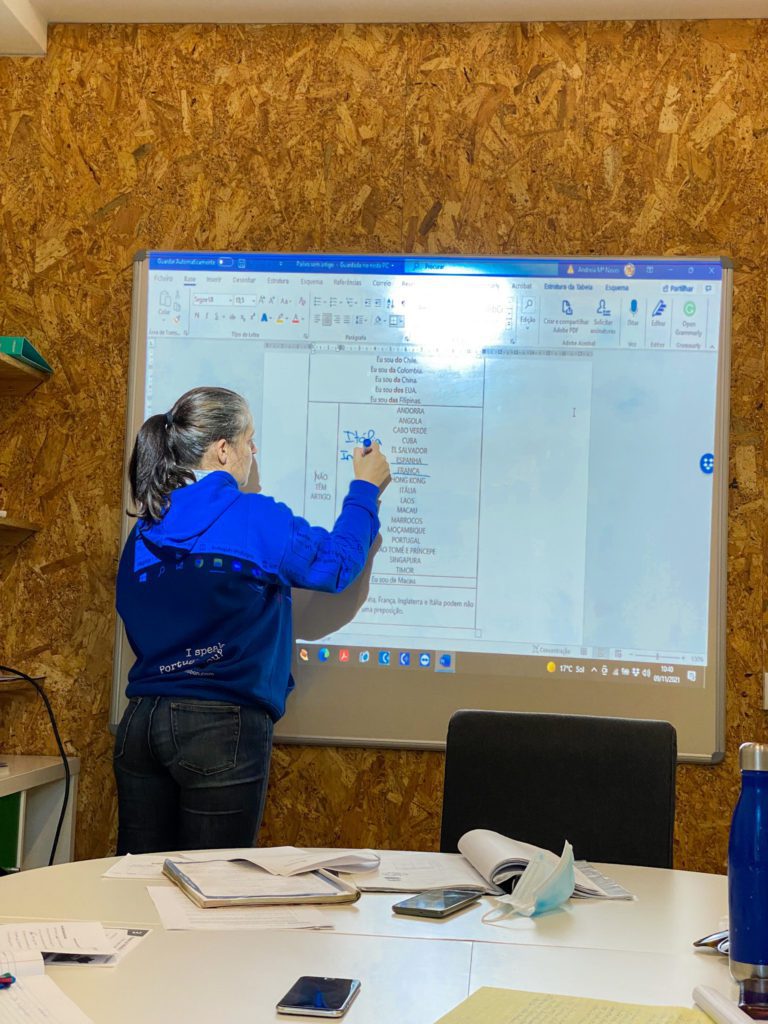
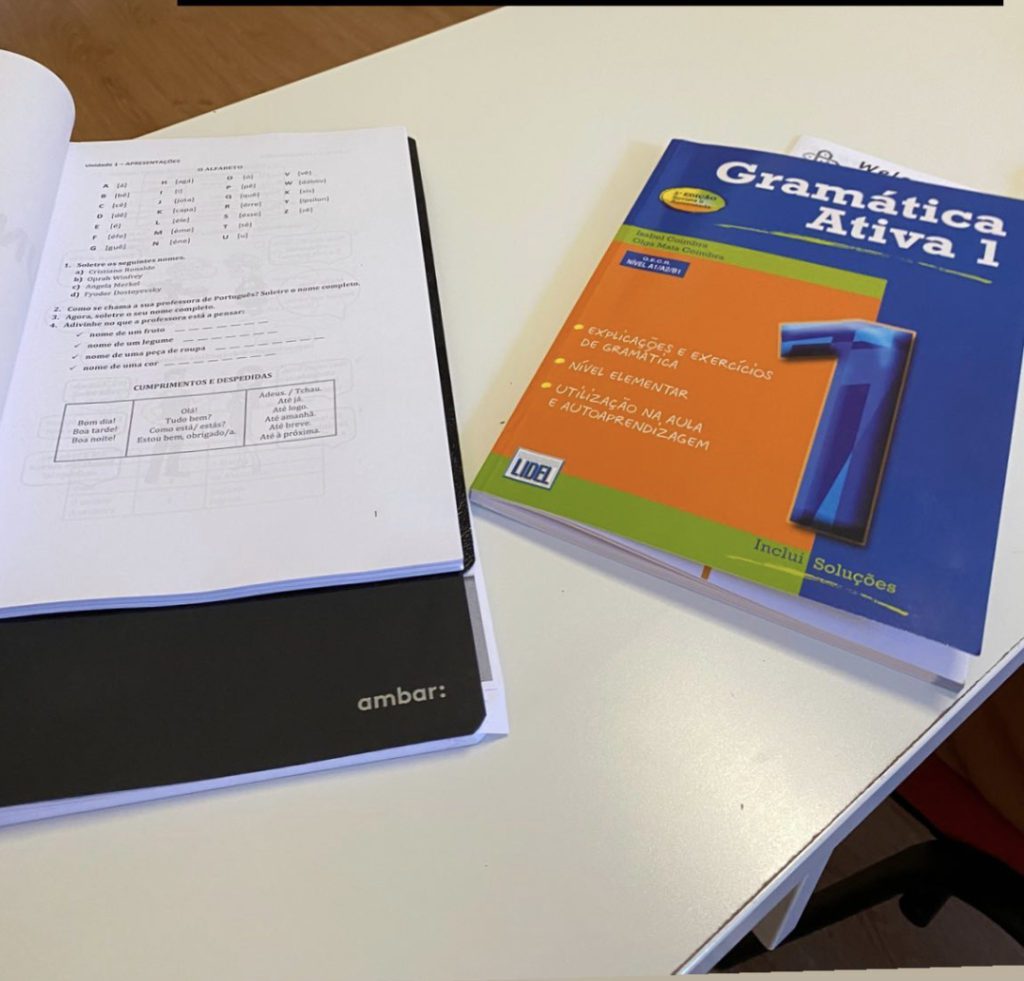
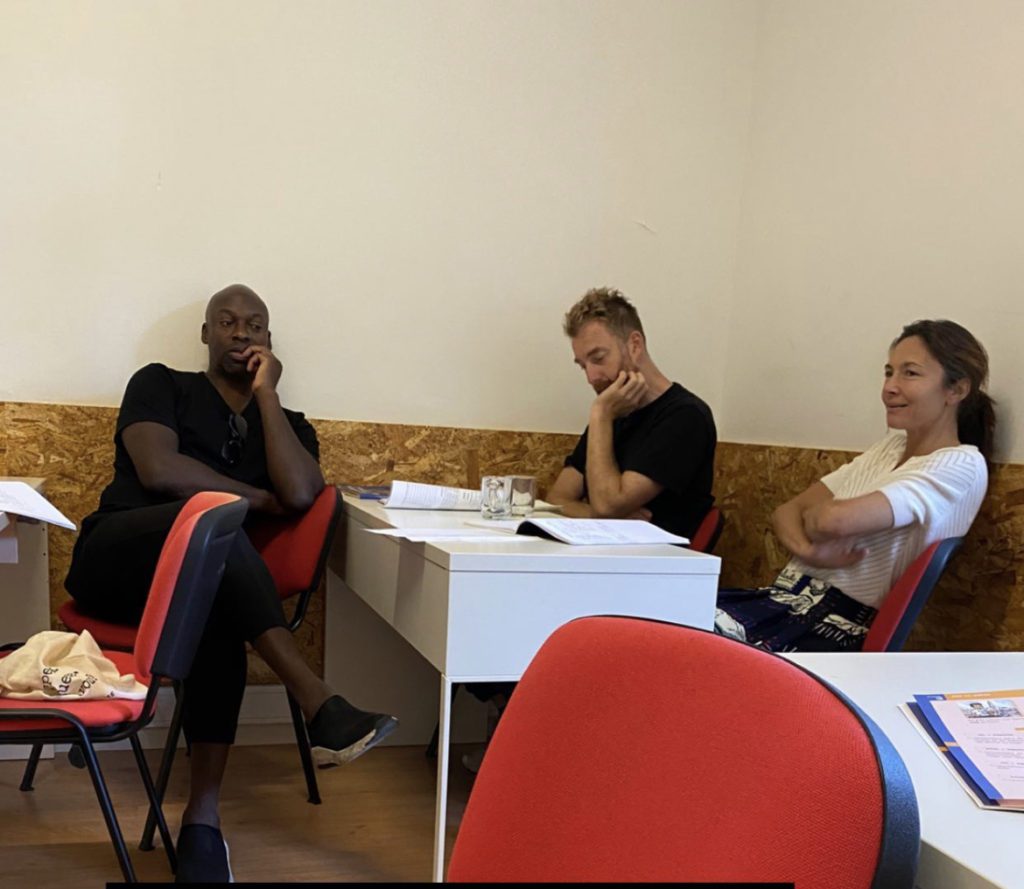
On the first day, we learned how to introduce ourselves and got to know each other a bit. This added much value to the class, as you may stay with your classmates for several weeks.
I also chose to add a 1-hour private lesson each afternoon following class. I think this added a ton of value to my experience, and I plan to continue on with this program. Each afternoon, I was forced to use the concepts learned that day in conversation. It has helped my Português develop at a rapid pace.
There are many other options for classes within Portuguese Connection School, including private lessons, night classes, and other options to fit your needs.
My husband and I work US hours, so the daytime classes here work perfectly. It does make for very long days, but I’ve thoroughly enjoyed the challenge. Most other students in my class are retired, students, or in between jobs, so their main focus is on the course. I’ve connected with various ages, personalities, and nationalities in my four weeks here. I’ve been the only American in my classes so far!
We usually start class with about 20 minutes of conversation. We will talk about our previous lessons, learn more about each other, etc. Then we jump into sections of our grammar and vocab books. Generally, 2-3 topics are covered each day intensely.
We may do some bookwork for each topic, listen to audio challenges, interact as a group, and talk A LOT in Portuguese. By the end of the week, I’ve listened to over 24 hours of Portuguese, and my comprehension soars each week that I attend.
There is also homework assigned each day. While you aren’t kicked out of class for not doing your homework, you lose the opportunity to progress. Each day we review the homework as a class. So far, the longest I’ve spent on homework was 45 minutes. However, I do know it gets more intense as levels progress.
“Levels” of Portuguese at the school are broken into the following segments:
On average, each level takes 4-6 weeks to complete, but the teachers won’t let you progress before you are ready. Each day is an assessment, and they constantly adapt and mold the curriculum to the class’s needs. Some weeks progress faster than others, depending on the different levels within a class.
Portuguese Connection only teaches up to C-Level. At that point, you should be very fluent and have decent writing skills. If you wish to continue your language progression, you’ll need to seek out university-level classes. Continuing would make sense for professional reasons or simply because you want to become more fluent. However, for the average person, C-Level knowledge will be sufficient.
As the levels progress, you will be doing more and more speaking. In the first couple of levels, you are doing a lot of listening and comprehension learning, but I’ve been told this changes as you progress. B-Level classes are primarily conversational, with additional grammar and “tense” learnings.
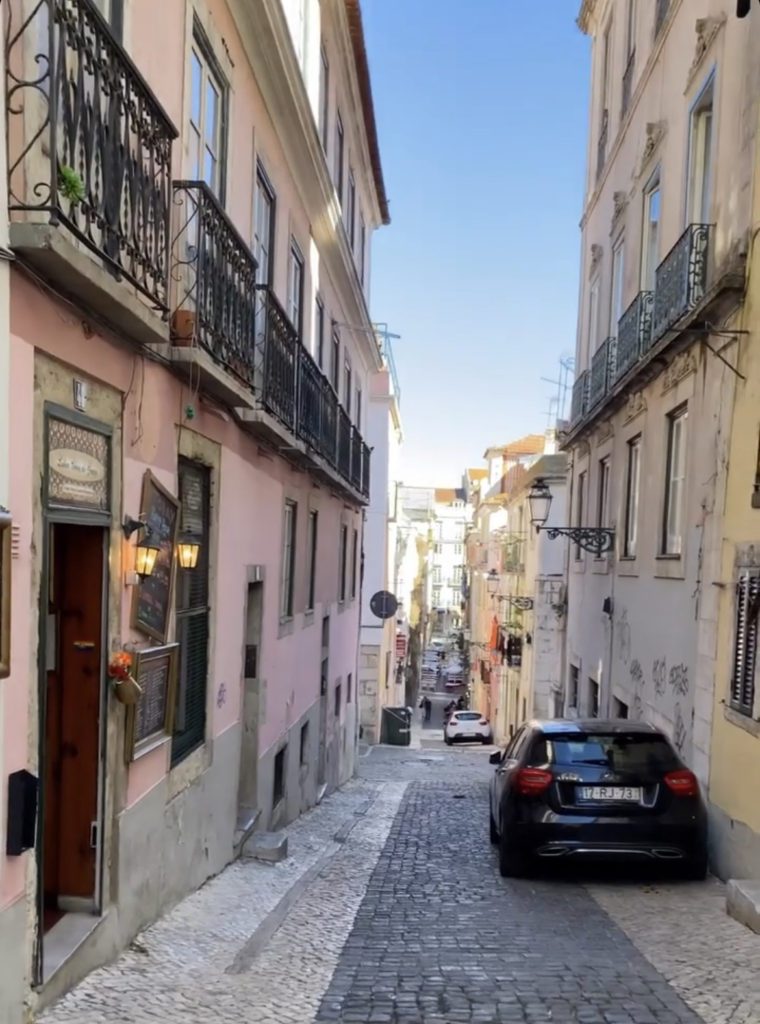
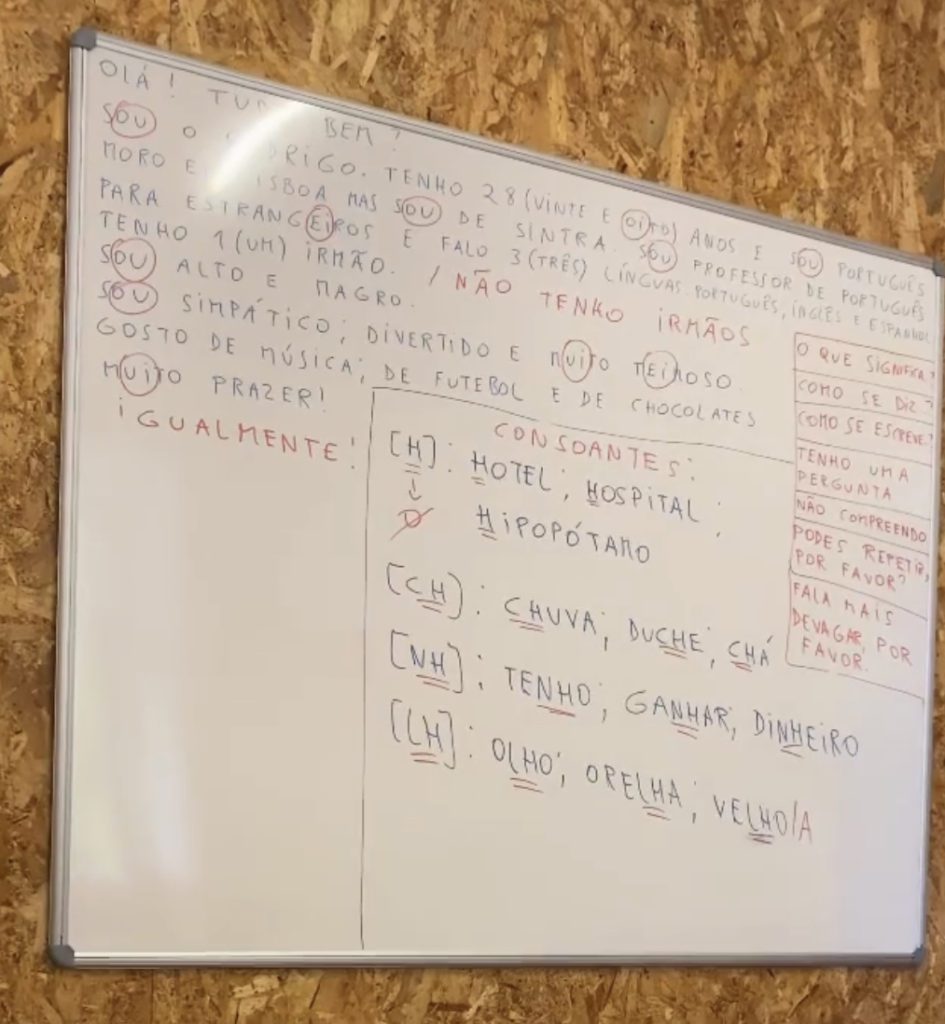

Honestly, I’ve loved every day I’ve gone to class. I was anxious on my first day and unsure of what to expect. Now, I crave going back and continuing my progression in Portuguese.
While most Portuguese people speak English, I feel a lot of insecurity and self-doubt when I cannot correctly communicate in my native tongue. It makes me shy, nervous, and fearful.
Going to class and building my skills in Portuguese has helped build my confidence. I no longer dread going to the checkout counter at the store, and I embrace every opportunity to practice a little bit of conversation.
Classes are fun and move quickly. Taking these classes while working full-time is a real challenge for my family and me. But each day, I find the energy and truly enjoy it. I’ve made some new local friends as well, which fuels me!
So far, I’ve completed A1.1 and am working on learning some new tenses, like past tense. I can’t wait to unlock this part of my skills. I already have about 60-80% comprehension in most of my conversations with locals, can understand almost all signs and directions, and have no trouble with basic exchanges. I am thrilled with my learning so far!
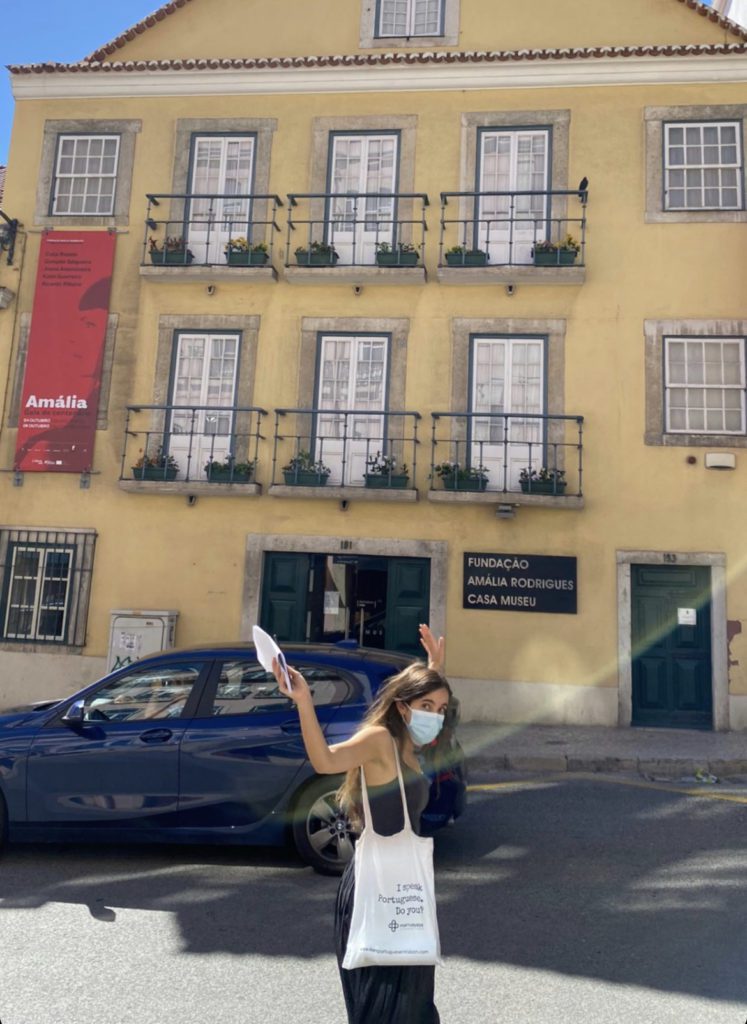

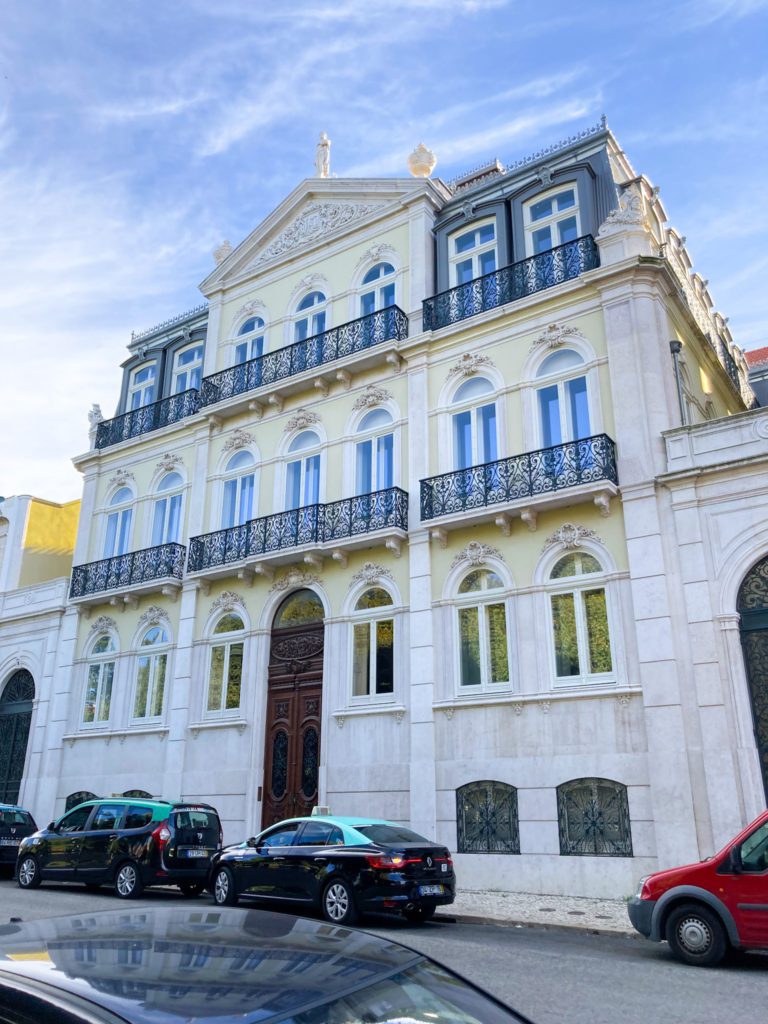
In addition to taking formal classes, here are a few tips from me!
Overall, I give my hearty and honest recommendation for learning Portuguese and using Portuguese Connections School to do so! I’ve been so appreciative of their efforts to work around my ever-changing schedule, their fun personalities, and making this difficult experience enjoyable.
If you are interested in learning this language, visit Portuguese Connection School’s website to learn more!
Boa Sorte,
Leslie
[show-map id=’19’]
Book a flight for your family on Booking.com, Skyscanner, Kiwi.com, or Expedia
Find affordable hotels from Booking.com, Expedia, or Vrbo, (we also love Tripadvisor and Hotels.com)
Discover fun family activities from GetYourGuide, Airbnb Experiences, or Viator
Need a car? Rent one on Expedia Rental Cars
Get your family’s travel insurance from World Nomads
Want to have a photo shoot while traveling? Check out flytographer!
Capture your best family memories while traveling with a GoPro, Sony camera, or our favorite drones: DJI FPV, Air, and Mini
Check out other travel necessities from a comprehensive list of all the 7Wayfinders Travel Must-Haves. Click Here!



MOVING YOUR FAMILY TO PORTUGAL FROM THE UNITED STATES: WHAT TO KNOW
WHY WE ARE UPROOTING OUR FAMILY AND MOVING TO PORTUGAL
HOW TO OBTAIN A PORTUGUESE D7 VISA FOR YOUR FAMILY: EVERYTHING YOU NEED TO KNOW

8 Comments